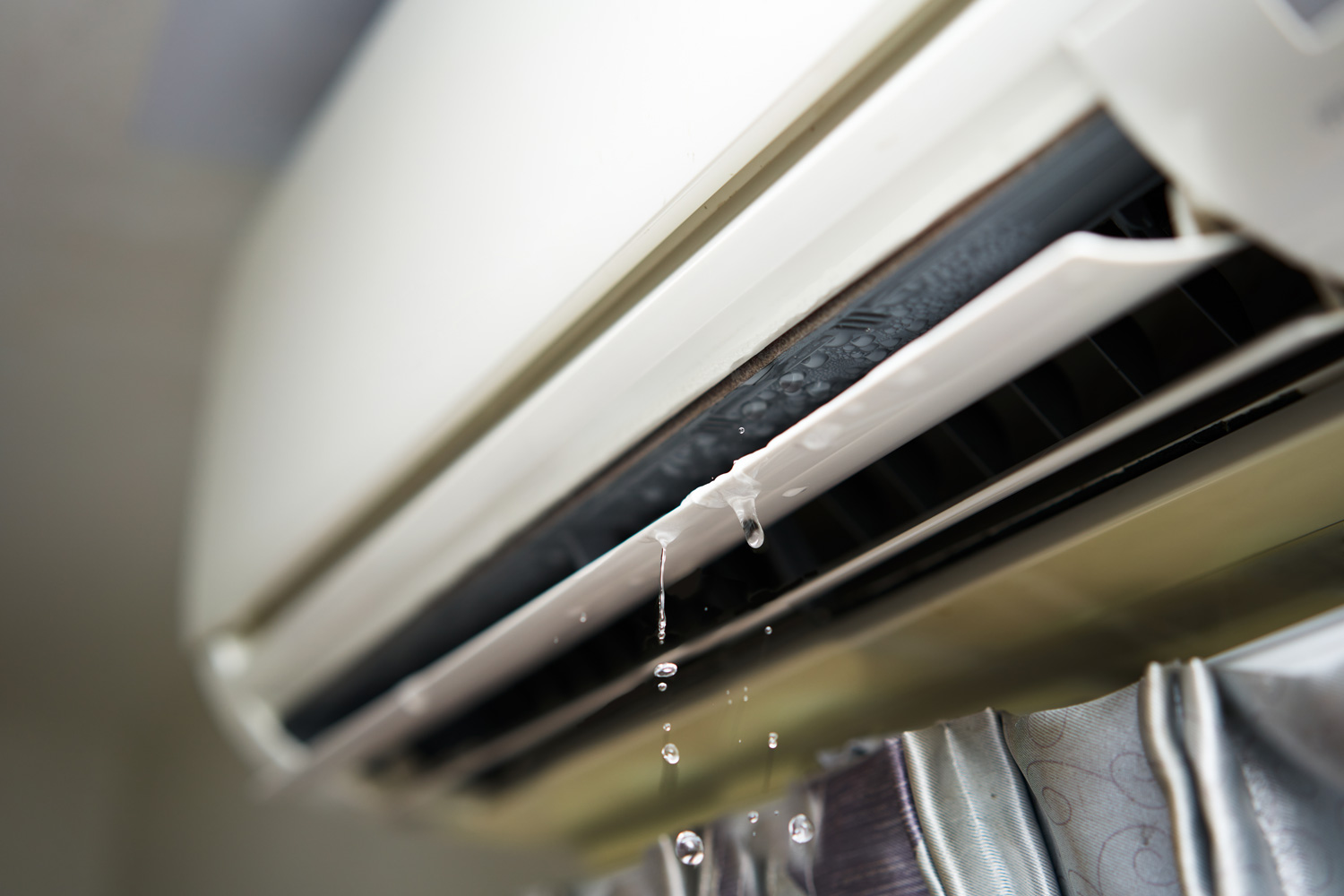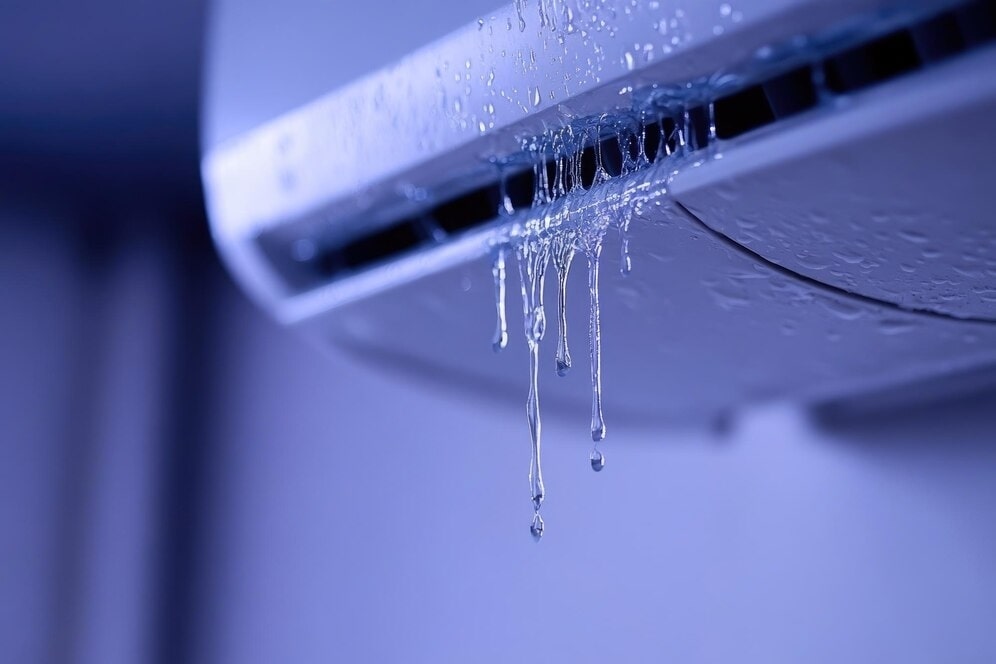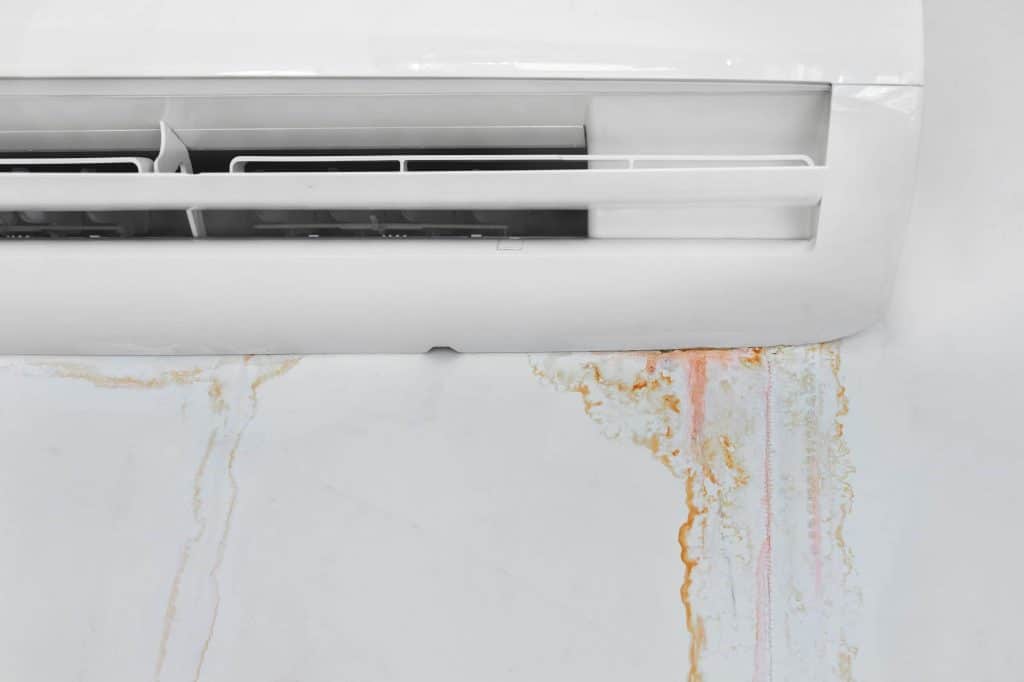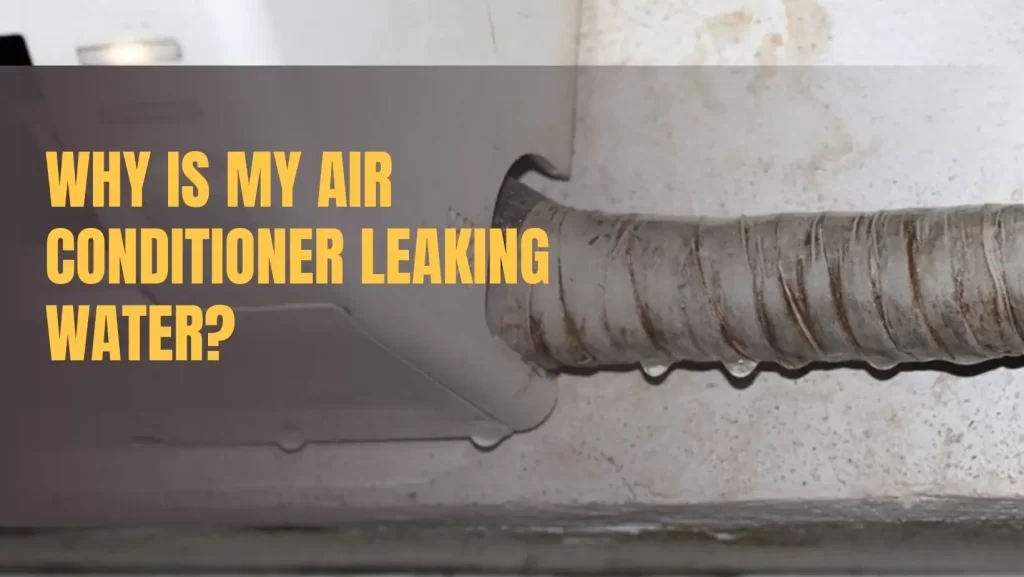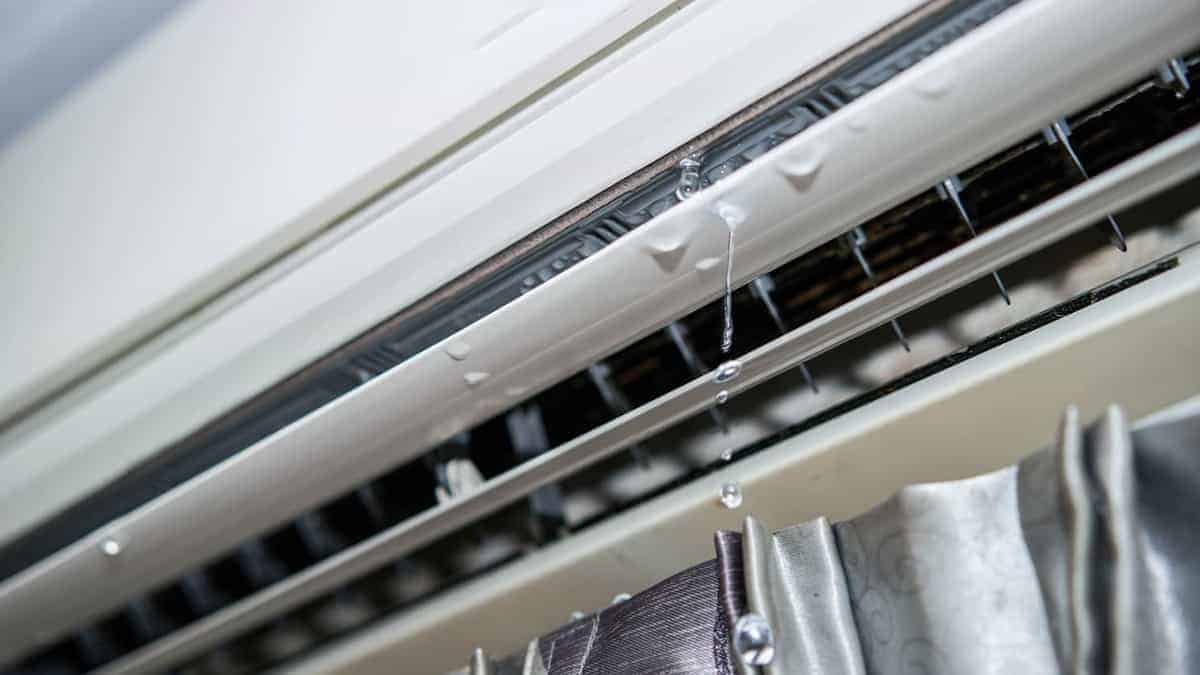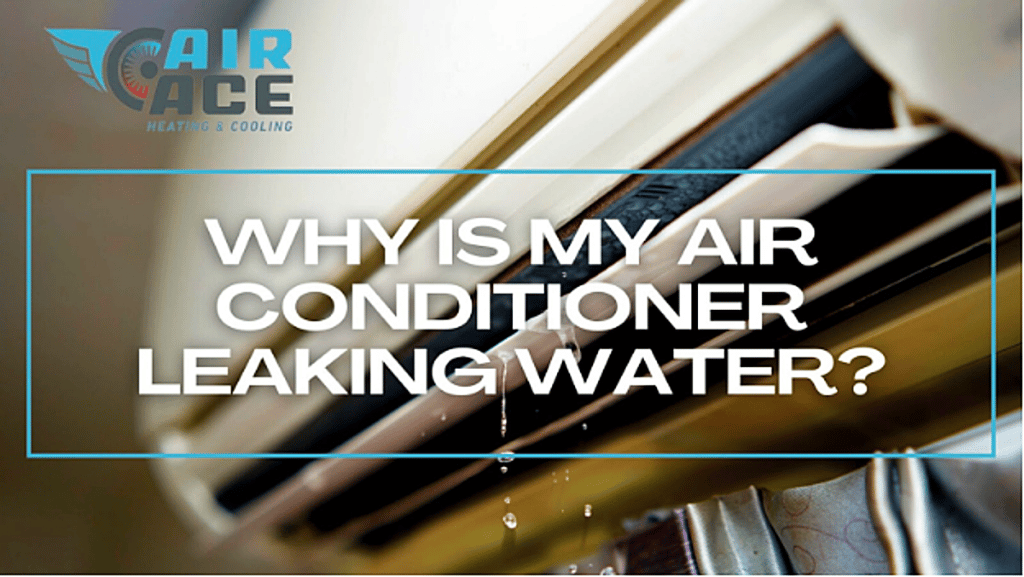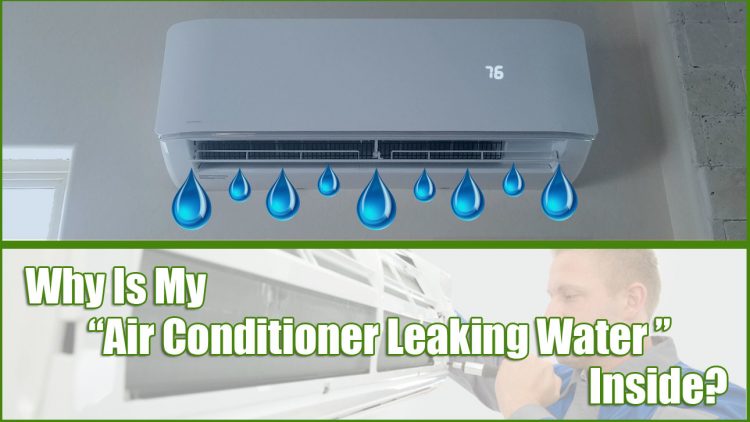Why Is The Air Conditioner Leaking Water
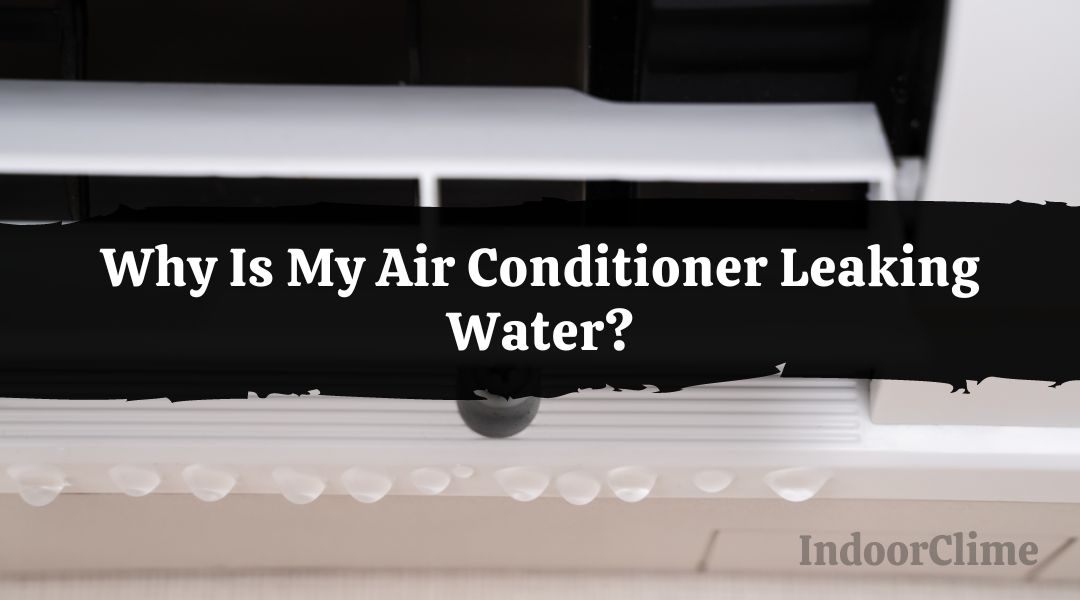
Why Is Your Air Conditioner Leaking Water? A Comprehensive Guide
Discovering water around your air conditioning unit can be alarming. While a little condensation is normal, a significant leak usually indicates an underlying issue. Understanding the potential causes can help you diagnose the problem and determine the best course of action, saving you time and money.
Common Causes of Air Conditioner Leaks
Several factors can contribute to an air conditioner leaking water, ranging from simple fixes to more complex repairs. Let's explore the most common culprits:
1. Clogged Condensate Drain Line
This is the most frequent reason for AC leaks. Your air conditioner produces condensation as it cools the air. This water is collected in a drain pan and then flows through a condensate drain line to the outside or into a drain. Algae, mold, dust, and other debris can accumulate inside the drain line, causing a blockage. When the drain line is clogged, the water backs up into the drain pan, eventually overflowing and leaking.
Solution: You can often clear a clogged condensate drain line yourself using a wet/dry vacuum to suck out the blockage. Alternatively, you can try pouring a cup of diluted bleach or vinegar down the drain line to dissolve the clog. If the clog is stubborn, a professional HVAC technician may be needed to use specialized tools to clear the line.
2. Cracked or Rusted Drain Pan
The drain pan, usually made of plastic or metal, sits beneath the evaporator coils to collect condensation. Over time, especially in older units, the pan can crack, rust, or corrode. This damage allows water to leak out.
Solution: Inspect the drain pan for any signs of damage. Small cracks can sometimes be patched with epoxy, but a severely damaged or rusted pan will likely need to be replaced by a professional.
3. Dirty Air Filter
A dirty air filter restricts airflow over the evaporator coils, causing them to get too cold. This can lead to the coils freezing up. When the ice melts, it overwhelms the drain pan, causing it to overflow.
Solution: Regularly check and replace your air filter every 1-3 months, or more frequently if you have pets or allergies. A clean filter ensures proper airflow and prevents the coils from freezing.
4. Low Refrigerant Levels
Low refrigerant levels can also cause the evaporator coils to freeze. When there's not enough refrigerant, the pressure drops, and the coils get too cold. As with a dirty air filter, the melting ice can overwhelm the drain pan.
Solution: Low refrigerant levels usually indicate a leak in the refrigerant lines. This is a serious issue that requires a professional HVAC technician to diagnose and repair. Do not attempt to handle refrigerant yourself. It is a regulated substance and requires specialized equipment and training.
5. Improper Installation
A poorly installed air conditioner can have various problems, including an improperly sloped drain pan or a kinked condensate drain line. These issues can prevent water from draining properly, leading to leaks.
Solution: If your air conditioner was recently installed and is leaking, contact the installer immediately. Improper installation should be covered under their warranty.
6. Condensate Pump Failure
Some air conditioners, particularly those in basements or attics, use a condensate pump to move water up and away from the unit. If the pump fails, the water will back up and leak.
Solution: Check the condensate pump to ensure it's plugged in and functioning correctly. If the pump is not working, it may need to be repaired or replaced.
Diagnosing the Leak
Before calling a professional, try to identify the source of the leak. Here are some steps you can take:
- Locate the leak: Determine where the water is coming from. Is it near the indoor unit, the outdoor unit, or somewhere along the condensate drain line?
- Check the air filter: Is it dirty or clogged?
- Inspect the drain pan: Look for cracks, rust, or corrosion.
- Examine the condensate drain line: Is it clogged or kinked?
- Listen for unusual noises: A hissing sound could indicate a refrigerant leak.
When to Call a Professional
While some AC leak problems can be resolved with DIY solutions, others require the expertise of a qualified HVAC technician. Call a professional if:
- You suspect a refrigerant leak.
- You are uncomfortable working with electrical components.
- You cannot locate or identify the source of the leak.
- The problem persists after attempting DIY solutions.
Preventative Maintenance
Regular maintenance can help prevent AC leaks and other problems. Consider these tips:
- Replace your air filter regularly.
- Schedule annual HVAC maintenance with a qualified technician.
- Keep the area around your outdoor unit clean and free of debris.
- Periodically flush the condensate drain line with vinegar or diluted bleach.
Choosing a New Air Conditioner: Features to Consider
If your air conditioner is old or frequently leaking, it may be time to consider a replacement. When choosing a new AC unit, keep these factors in mind:
- SEER Rating (Seasonal Energy Efficiency Ratio): This measures the cooling efficiency of the unit. Higher SEER ratings mean lower energy bills. Look for units with a SEER rating of 14 or higher.
- AFUE (Annual Fuel Utilization Efficiency): This applies to furnaces and measures heating efficiency. While not directly related to AC leaks, it's important to consider when replacing your entire HVAC system.
- HSPF (Heating Seasonal Performance Factor): This rating applies to heat pumps and measures their heating efficiency.
- Size: Choose the right size unit for your home to ensure optimal cooling and prevent short cycling (frequent on/off cycles). A professional HVAC technician can perform a load calculation to determine the appropriate size.
- Features: Consider features like variable-speed blowers, smart thermostats, and zoning systems for enhanced comfort and energy savings.
- Warranty: Look for a unit with a comprehensive warranty that covers parts and labor.
Popular HVAC Brands and Models
Several reputable HVAC brands offer high-quality air conditioners. Here are a few popular options:
- Carrier: Known for their innovative technology and high-efficiency units. The Carrier Infinity Series offers top-of-the-line performance and features.
- Trane: A trusted brand with a reputation for reliability and durability. The Trane XV20i is a popular choice for its high SEER rating and variable-speed compressor.
- Lennox: Offers a wide range of air conditioners to suit different budgets and needs. The Lennox Signature Series is known for its quiet operation and energy efficiency.
- Rheem: A value-oriented brand that provides reliable performance at an affordable price. The Rheem Prestige Series offers good efficiency and features.
- Goodman: Known for providing affordable options with warranties, good for cost-conscious buyers.
Understanding Warranties and Maintenance Needs
A comprehensive warranty is crucial for protecting your investment in a new air conditioner. Be sure to read the warranty carefully and understand what is covered. Most manufacturers offer a limited warranty on parts, but some also offer extended warranties that cover labor.
Regular maintenance is essential for keeping your air conditioner running efficiently and preventing problems. Schedule annual maintenance with a qualified HVAC technician to inspect and clean your unit. This will help prolong its lifespan and minimize the risk of breakdowns.
Pricing Considerations
The cost of a new air conditioner can vary depending on the size, efficiency, and features of the unit. Expect to pay between $3,000 and $7,000 for a complete installation. Get quotes from multiple HVAC contractors to compare prices and services. Remember that the cheapest option is not always the best choice. Consider the long-term cost of ownership, including energy bills and maintenance costs.
Conclusion
Addressing an air conditioner leak promptly can prevent further damage to your home and save you money on repairs. By understanding the common causes of leaks and taking preventative measures, you can keep your AC running smoothly and efficiently for years to come. When in doubt, consult with a qualified HVAC professional for expert advice and service.
